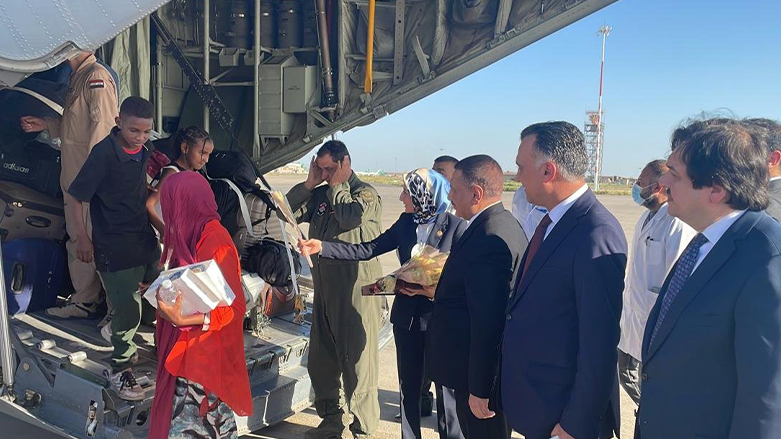Exhausted Iraqis evacuated from Sudan back in Baghdad

More than 200 exhausted Iraqis evacuated from Sudan flew back to Baghdad on Thursday, with one saying he hadn't seen the sun in 10 days because of the fighting.
Among the 234 people who were flown to Baghdad International Airport from Port Sudan were 16 Syrians, the foreign ministry said.
It was unclear whether they would stay in Iraq or return home.
"Overnight the war happened," said 30-year-old Iraqi engineer Ahmed al-Baldawi, his eyes red with fatigue.
"There was no food, no water and no electricity. For 10 days we didn't see the sun."
Evacuees arrived Thursday with stuffed backpacks and heavy suitcases, and one woman in a dark abaya carried her white cat in a plastic crate.
Another young woman burst into tears of relief as she left the airport.
The fighting broke out in Sudan on April 15 between Sudan's army led by General Abdel Fattah al-Burhan and the paramilitary Rapid Support Forces commanded by his deputy turned rival, Mohamed Hamdan Daglo.
At least 512 people have been killed and 4,193 wounded, according to official figures in Sudan, although the real toll is likely to be much higher.
Many countries have been taking advantage of a tenuos truce to evacuate their citizens by air, land and sea, even though fighting has continued with air strikes in the capital Khartoum.
An evacuation of Iraqis organised in conjunction with the United Arab Emirates embassy in Khartoum had been due to take place on Sunday, Baldawi said.
"We were happy and got ready, but then they told us it was only for Emiratis," Baldawi told AFP.
"So we stayed stuck in our apartments. We were devastated."
- ' It was catastrophic' -
Robay Ahmed, 24, said he had returned to Iraq with his parents, brother and sister, 16 years after the family settled in Sudan.
"It was catastrophic," he said. "We kept away from the windows and we stayed low. There was a lot of fear."
Ahmed said he had just completed his medical studies to become a dentist.
"I couldn't even get my diploma," he said.
Before they could board their plane at Port Sudan, the evacuees had to travel nearly 1,000 kilometres (600 miles) by bus from Khartoum, a 12-hour journey on bumpy roads.
"The road is exhausting, it's nickname is the 'road of death'," said Ibrahim Jomaa, the father of a young girl.
"The bus was tossed from left to right -- we thought it was going to overturn."
But Jomaa was still full of praise for the Iraqi authorities who had managed to arrange their transport to safety.
He recalled that when the first shots rang out on April 15, "we thought the situation would calm down. People went to work and the kids went to school.
"But then suddenly there was artillery and rocket fire, and warplanes overhead," he said.
"We were the last to leave our building. It's empty now."
